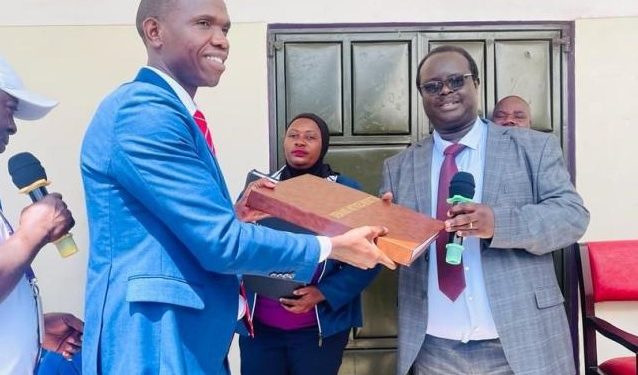By THE INDEPENDENT UG
Kampala, Uganda | THE INDEPENDENT | The Judiciary has introduced the Small Claims Procedure as one of the measures to expedite the resolution of small commercial disputes in three courts in the Western Uganda Region.
According to Resident Judge of Kabale High Court, Samuel Emokor, the initiative has been introduced in Bunagana, Kyanika, and Rubanda Courts. Additionally, the Judiciary plans to extend the procedure to Ndeija and Rwashameire Magistrates Courts this week, as part of its projects for the current quarter of the financial year 2022/2023.
Small Claims refer to commercial disputes with a subject value not exceeding 10 million shillings. These disputes often arise from issues such as failure to pay rent, supply of goods, and debts, among others.
During the launch of the Small Claims Procedure in Bunagana and Rubanda, Justice Emokor emphasized that it is an innovative approach by the Judiciary. He highlighted that if utilized effectively, it can facilitate speedy resolution of disputes without the involvement of lawyers, and court proceedings can be conducted in the local language.
“This is a positive move because previously, one had to engage a lawyer to file a case, following specific procedural rules. The Small Claims Procedure simplifies these procedures,” said the Judge. He further noted that in some instances, judgments are delivered immediately, while in others, it takes less than 14 days for a decision to be reached. Justice Emokor urged the communities near these courts to embrace the Small Claims Procedure and make the most of it.
Resident District Commissioner for Kisoro District, Hajji Badruh Ssebyala, commended the Judiciary for implementing President Yoweri Kaguta Museveni’s Manifesto. He urged the area leaders present to familiarize themselves with the Manifesto and also to spread awareness about the Small Claims Procedure in their communities. Ssebyala emphasized that it is a fast, inexpensive, and efficient method for resolving small civil-commercial disputes.
According to the Annual Performance Report of the Judiciary for 2022/23, Chief Justice Alfonse Owiny-Dollo noted that a total of 16.8 billion shillings was recovered through Small Claims cases, thereby contributing to the economy. However, he also acknowledged the increasing number of cases being registered in the court system, emphasizing the need for measures to expedite their disposal.
In 2021, the Constitutional Court Justices, led by Justice Fredrick Egonda-Ntende, nullified rule 8(2) and 3 of the Judicature Small Claims Procedure rules of 2011, which initially prohibited Advocates from participating in small claims proceedings and cross-examining witnesses in such cases. The Justices argued that these rules violated the Constitutional right to a fair hearing, including the right to legal representation. This decision allowed lawyers to participate in small claims cases, although the government has since appealed against it in the Supreme Court.
The Chairperson of the Small Claims Procedure Implementation Committee of the Judiciary, Justice Geoffrey Kiryabwire, expressed dissatisfaction with the decision to involve lawyers. He, along with the Principal Judge Dr. Flavian Zeija, formed a team of five Court Registrars to work with State Attorneys in the Attorney General’s chambers to appeal against the decision.
URN






Discussion about this post